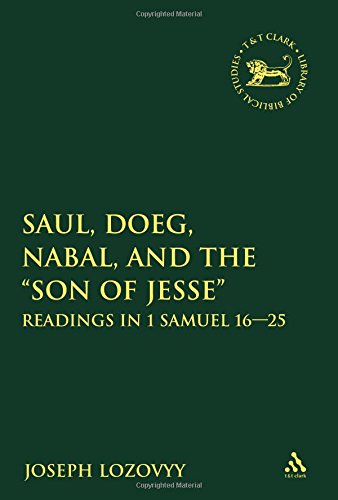

Most ebook files are in PDF format, so you can easily read them using various software such as Foxit Reader or directly on the Google Chrome browser.
Some ebook files are released by publishers in other formats such as .awz, .mobi, .epub, .fb2, etc. You may need to install specific software to read these formats on mobile/PC, such as Calibre.
Please read the tutorial at this link: https://ebookbell.com/faq
We offer FREE conversion to the popular formats you request; however, this may take some time. Therefore, right after payment, please email us, and we will try to provide the service as quickly as possible.
For some exceptional file formats or broken links (if any), please refrain from opening any disputes. Instead, email us first, and we will try to assist within a maximum of 6 hours.
EbookBell Team

4.1
40 reviewsThis work examines some of the stories in 1 Sam. 16—25 with the particular focus placed on Saul, Doeg, Nabal and the "son of Jesse." It seeks to discover new meaning in the structure as well as in the characters' functions in the narratives by studying the stories synchronically and diachronically.
One of the mysterious characters in 1 Samuel that has puzzled many a scholar is Nabal the Calebite. This study scrutinizes the elements of his characterization in 1 Sam. 25 and considers his abuses of the "son of Jesse", the contextual role of the geographic setting and political environment during King Saul's reign. Similarly, this volume studies the function of the character of Doeg the Edomite in 1 Sam. 21 and 22 regarding his Edomite origin, his particular business in Nob and his official status in Saul's court.
The phrase the "son of Jesse" is quite important in 1 Samuel and serves a particular purpose in the thematic development in the second half of the book. Viewed against the background of the Saul/David relationship, it underscores the superiority of the Davidic person in advancing the divine plan for the nation of Israel.
The determination of the book's historical context is the key to understanding the multilayered messages. The roles of history and ideology in making these stories are also considered with the proposal that the making of the book(s) of Samuel after the Exile (5th c. B.C.) might have been instigated by the writer's desire to create the context needed for further development of the messianic ideas.
>